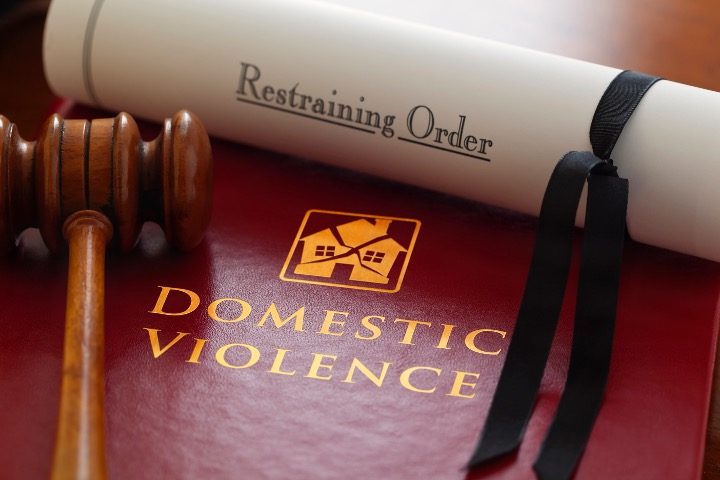
A brief supporting the ending of a federal rule that “prohibits the knowing transfer of a firearm to a person who is subject to” a domestic violence restraining order, or DVRO, was submitted to the Supreme Court on Thursday. In United States v. Rahimi the question the high court will answer is whether that law (18 U.S.C. 922(g)(8)) “violates the Second Amendment.”
According to Georgetown University professor William English, it most certainly does. He is a political economist and teaches at the McDonough School of Business at Georgetown. He has long investigated the impact that “the denial of constitutional rights to those who have been wrongfully accused of domestic violence without due process” has had on the millions who have suffered such denials.
The law has its genesis in the Gun Control Act of 1968, but has been repeatedly amended and expanded to the point today where someone suffering under a DVRO is automatically denied his Second Amendment rights.
The challenge dates back to February 2020, when Zackey Rahimi was issued a DVRO by his ex-girlfriend. She accused him of assaulting her, and the DVRO was issued. He was later found to possess some firearms, and was charged and convicted under Section 922.
He filed suit, claiming the law is unconstitutional, and the Fifth Circuit Court of Appeals agreed in February this year. Judge Cory Wilson ruled that, under Bruen, there was no “historical tradition” that supported the law and ruled in favor of Rahimi.
Biden’s Department of Justice appealed, and the case is now being heard by the Supreme Court. The brief from Professor English adds to the weight of the arguments against Section 922.
First, he claims — with proof — that “such orders are widely abused, often in an effort by a party to obtain a tactical advantage during divorce and custody cases.” He provides evidence that while the defendant must suffer the consequences, both legal and financial, of defending himself (most DVROs are issued against men), there are no consequences for the other party.
He writes that “empirical evidence that restrictions on firearms ownership accompanying such orders are effective at preventing domestic violence is weak.” Said another way: DVROs don’t work.
Instead, “there is strong evidence that [DVROs] are widely used and abused,” with the “net effect … that millions of innocent, law-abiding citizens have been deprived of their Second Amendment rights without due process.”
Professor English referred to his monumental and highly regarded study, the National Firearms Survey, which documents that there are more than 1.6 million defensive gun-use incidents in the U.S. every year, and that because of the increasing use of DVROs, “gun owners falsely accused under [the federal law] are themselves placed in danger when th[at] law deprives them of the ability to defend themselves.”
The law’s blanket indictment of innocents based solely on having a DVRO inflicted on them is repugnant, wrote English:
Blanket deprivation of constitutional rights for classes of people based on statistical properties of those classes as a whole would have repugnant legal implications, which courts have roundly rejected.
English comes perilously close to claiming that Section 922 is deliberately targeting lawful gun owners by depriving them of “robust” due process guaranteed under the Fourth Amendment:
For the vast majority of citizens, firearms are life saving devices and they should not be readily removed without the sorts of robust due process and other protections we see in involuntary civil commitments and imprisonment.
He declares further that “Not only is § 922(g)(8) unconstitutional based on the clear standards established by Bruen, it is also poor public policy, prone to gross abuse with meager evidence of efficacy.”
The number of people, usually male gun owners, being subjected to abuse under Section 922 is staggering: There are “over two million active protective orders for alleged domestic violence nationwide” issued every year.
The “efficacy” of Section 922 in preventing deaths, in even the most optimistic study, is around 120 in a year. On the other hand, writes English:
4,000 persons die of unintentional drownings each year and [yet] we still permit recreational swimming, [and so therefore] we must evaluate the putative and likely benefits of these laws in the context of their costs for the millions of people subject to them who are not violent.
Here is the primary problem: DVROs are often requested and granted for trivial or devious purposes:
The problem is that protective orders can be obtained under false or trivial pretenses, and there are systematic pressures to do so for strategic purposes within romantic and marital disputes.
A further problem, writes English, is the enormity of the number of DVROs being issued every year: More than 20.4 million adults “report being falsely accused of domestic violence, child abuse, sexual assault, or other forms of abuse.” That means “that millions of innocent accused [people] can potentially be denied Second Amendment rights, which are rights that research has consistently shown are vital for self-defense.”
He had more to say about the lack of due process involved in the issuance of DVROs:
It could be argued that disarming men would bring benefits for public safety, but this conclusion would be repugnant to civil rights, equality, and the presumption of innocence.
Focusing on non-innate risk characteristics is not a promising path to pursue either. It may be the case that those who take testosterone, or those who like certain sorts of social media posts, or those who dress certain ways, or those who are going through a contentious divorce, and so on, as a group have higher propensities to violence.
Targeting such groups for disarmament as a whole, however, is not a public policy approach countenanced by the Constitution.
English concludes his brief:
The problem with § 922(g)(8) and laws like it is that their net effect is to deprive a large class of citizens, many who have been falsely accused, of their fundamental constitutional right to keep and bear arms without due process, jeopardizing their own safety.
Moreover, the benefits to public safety are estimated to be small in the best case and perhaps nonexistent.
Finally, while these laws may pursue a laudable public purpose of disarming genuinely dangerous aggressors, there are [other] ways to effectively pursue this aim while protecting due process and Second Amendment rights.
The Supreme Court justices are urged to carefully consider Professor English’s arguments and affirm the Fifth Circuit Court’s ruling that Section 922 is deliberately and blatantly unconstitutional.



